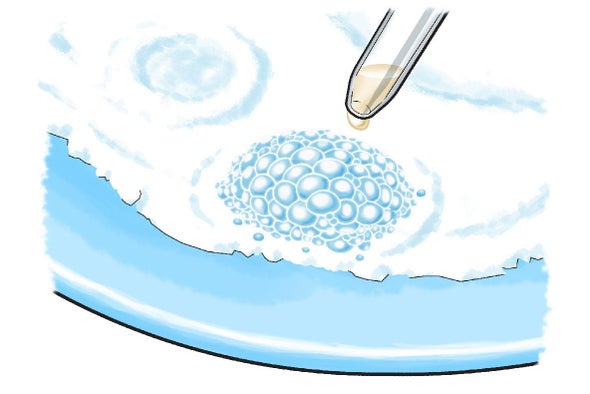 |
| November 04, 2022 |
 |
| |
| |
| |
| |
| |
| |
| |
| |
| |
| |
| Neuroscience Color Is in the Eye, and Brain, of the Beholder The way we see and describe hues varies widely for many reasons: from our individual eye structure, to how our brain processes images, to what language we speak, or even if we live near a body of water | | By Nicola Jones,Knowable Magazine | | | |
| |
FROM THE STORE
 | | | |
BRING SCIENCE HOME
 | | A Simple Sourness Detector |  Bubble, bubble, acid or base? Learn how you can easily find the pH of common kitchen products--and how their acidity relates to their taste. Credit: George Retseck | Have you ever wondered why some foods or drinks taste sour whereas others do not? You might know that your tongue is picking up all kinds of flavors, including salty, sweet, bitter and sour. But what makes something taste sour? The sour taste is actually influenced by the pH and acids present in foods. In this activity you will find out how sour different foods are by testing foods and drinks for the presence of acids with baking soda. What do you think is the sourest food you can find in your kitchen? | |  | |
LATEST ISSUES
 |
| |
| Questions? Comments?  | |
| Download the Scientific American App |
| |
| |




